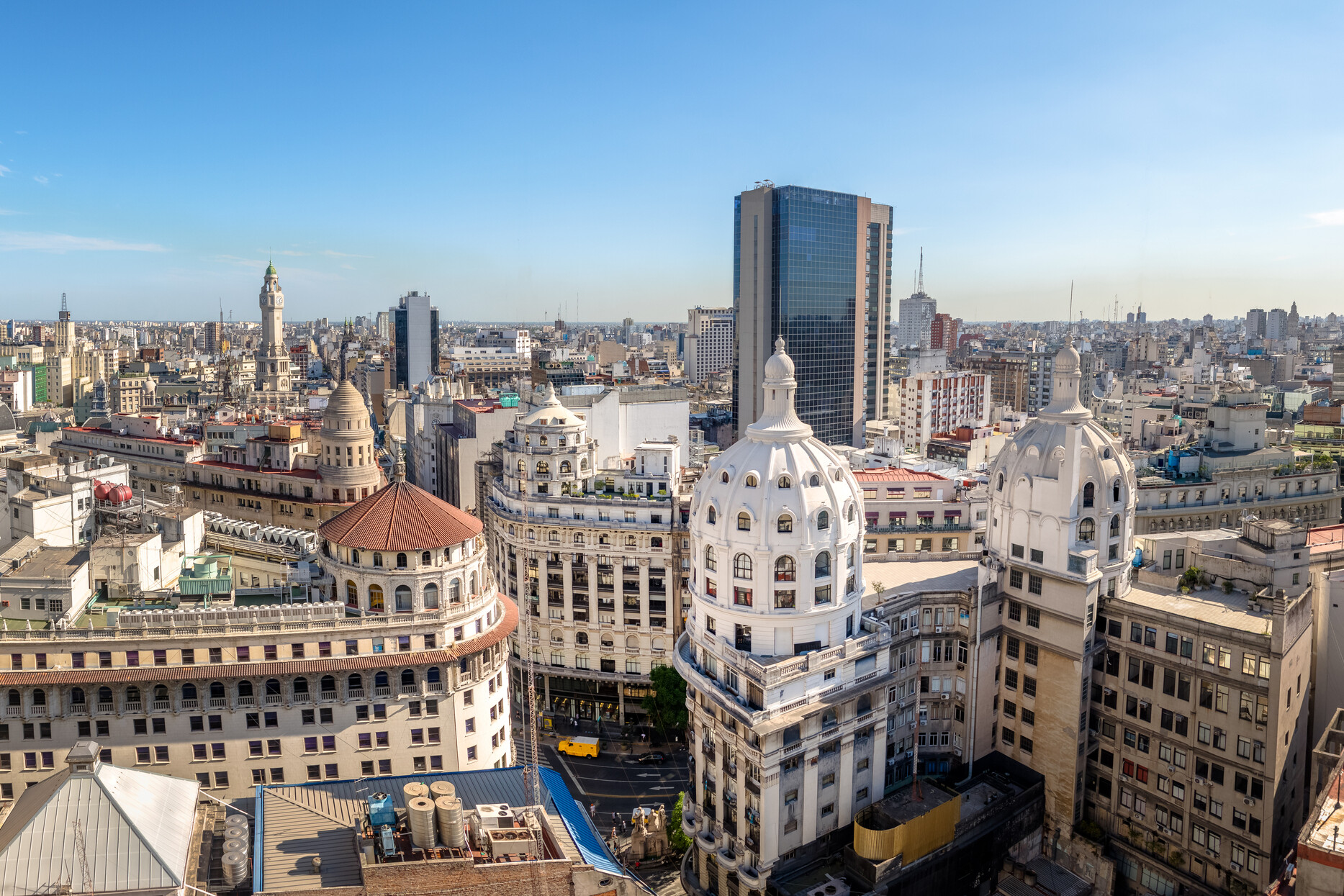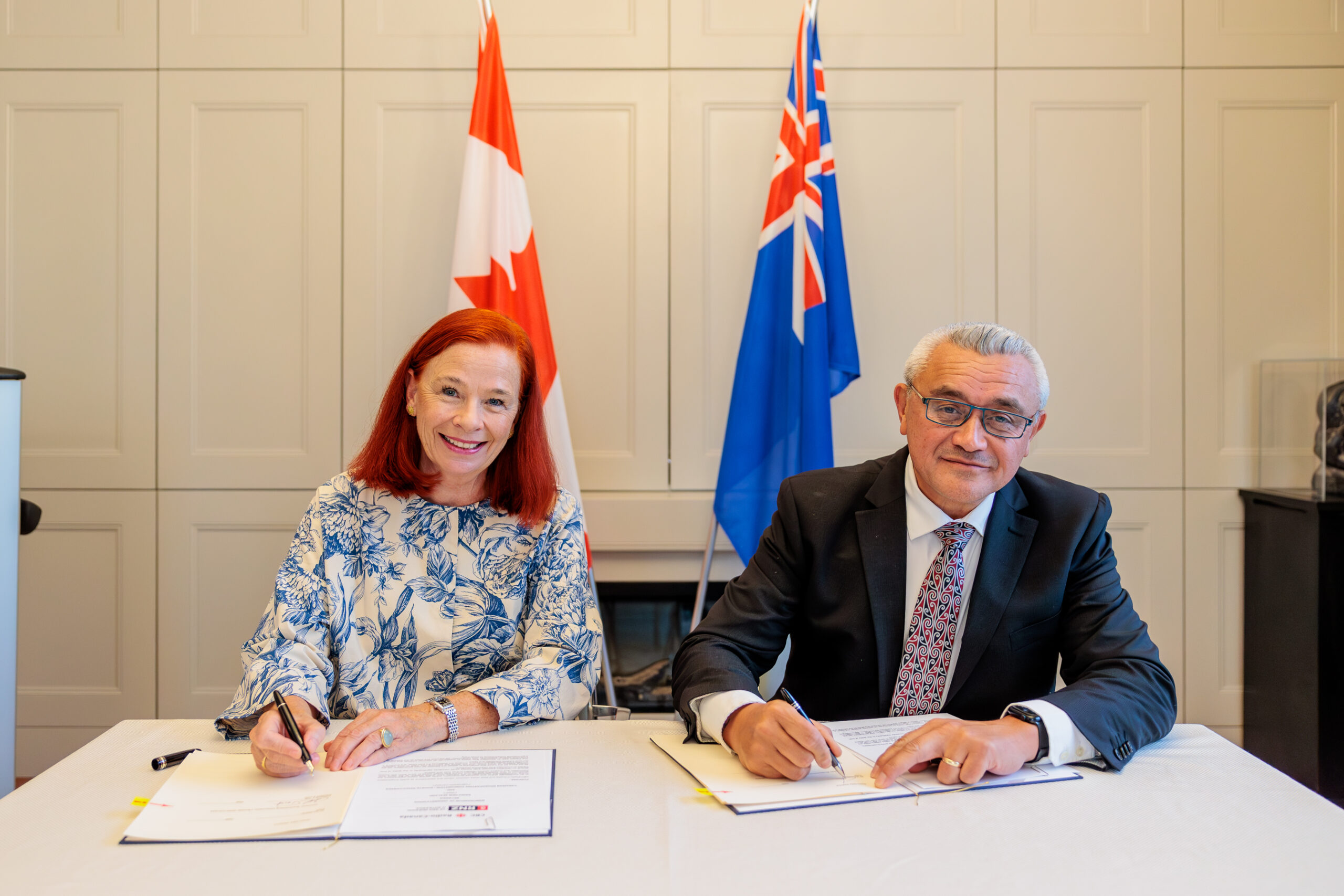INSIGHT
A World Without Radio-Canada
8th November 2023
On November 7, 2023, Catherine Tait, President and CEO of CBC/Radio-Canada, addressed the Chamber of Commerce of Metropolitan Montreal. She discussed the crisis in Canada’s media ecosystem and the decline of trust, two existential threats to the survival of Radio-Canada. She also described the steps the public broadcaster is taking to strengthen its bond of trust with Canadians

This speech was originally published on CBC/Radio Canada and is republished with permission.
Speech by Catherine Tait, CEO of CBC/Radio Canada
Good morning, and thank you, Michel.
Honoured guests, members of the CBC/Radio-Canada Board of Directors, dear colleagues from Radio-Canada and from CBC, ladies and gentlemen: Thank you for being here today.
I would like to begin by acknowledging that the land on which we gather is the traditional and unceded territory of the Kanien’keha:ka, a place that has long served as a site of meeting and exchange among nations.
As the national public broadcaster, we’re committed to reaching and engaging with all people living in Canada, including First Nations, Inuit and Métis.
That’s our ambition: To serve everyone across the country, throughout their lives.
We do not do that alone. We are part of a diverse Canadian media system. Along with private media, we provide a wide range of information and views. Together, we make our country, our democracy, stronger.
And we are in trouble.
Read More: It’s a Canada Thing: Standing Up For Our Industry and Our Stories
Last week’s terrible news that TVA is cutting a third of its workforce is just the latest. In June, Bell Media cut 1,300 jobs and closed six radio stations. And in August, Métro Média shut down operations on its daily newspaper and 16 other print weeklies.
Even Radio-Canada is not immune. Last month, I told our employees we must address over $100 million in budget pressures next year. All domestic players are facing financial challenges.
The evidence is painfully clear: unregulated competition from powerful foreign media giants is hollowing out our industry. I worry about what the loss of that talent and expertise means for our news and our culture. And more worrisome, the loss of our domestic news industry presents a real risk to our democracy.
There are some who might believe that whatever happens, CBC/Radio-Canada will always be there — or at least Radio-Canada will be there. But take a good look around you: The existence of public media — with their trusted news and information, their programs about culture — is under threat around the world.
That’s why I ask that we stop and think for a moment about what it might mean, for each and every one of us, to no longer be able to count on Radio-Canada.
In the morning, you might be one of the many Montrealers who listen to Tout un matin with host Patrick Masbourian.
You then drink your coffee scrolling the top news on our RC Info app or Radio-Canada.ca, like five million other francophones do every month.1
At suppertime, you might tune in to Le Téléjournal Grand Montréal with anchor Patrice Roy — who’s here with us today. You might also watch the drama STAT or the consumer affairs show La facture; or on weekends, the variety shows En direct de l’univers and Tout le monde en parle.
On Sunday night, you may have caught our ADISQ music awards gala. It was an opportunity to celebrate the talent of artists from all backgrounds, including Quebec rapper Fouki, pianist Alexandra Stréliski, the Indigenous group Black Bear, Ginette Reno, Daniel Bélanger and the Acadian band Salebarbes.
Also, during the Olympics and Paralympics, you probably join us to follow your favourite events, just like more than 28 million Canadians did during the Tokyo Games.2 And I expect these numbers will be even higher for Paris 2024.
On New Year’s Eve, millions of us tune in to Bye bye, the most-watched Canadian French-language broadcast of all time.
Now imagine a world without all these opportunities to get informed, be entertained and come together as a nation. Imagine your world without Radio-Canada.
Subscribe toour newsletter
Keep updated with the latest public
media news from around the world
Imagine that you were born in a French-speaking community in Edmonton or Vancouver, or that you’re moving to another province for work or family reasons. For the one million francophones living outside Quebec, Radio-Canada is one of the few media outlets — if not the only one — covering their region in French.
Two weeks ago, I was up north visiting our stations in Yellowknife and Whitehorse. I had the chance to meet some of the team from Radio-Canada Grand Nord, the only French-language news service reporting on the Yukon, Northwest Territories, Nunavut and Quebec’s Nunavik region. While I was there, I spoke to some of the journalists who covered the wildfires during the evacuation of Yellowknife.
Imagine for a moment what a world without Radio-Canada would look like for a francophone living in the Northwest Territories.
Imagine what it means for an Acadian to see a local band win the ADISQ award for song of the year on national television.
Without us, there would be no French-language coverage of provincial and municipal elections across the country, and we wouldn’t hear about issues that are crucial to French-speaking communities. We’re one of the few institutions that allow francophones to live in French wherever they are in the country.
While it’s true they may sometimes get their news from other sources and in several languages, we’re the only media organization that can give them that sense of belonging to the Canadian francophonie.
Our arts magazine shows on ICI TÉLÉ — shot in Winnipeg, Toronto and Moncton — as well as our independent productions in French across Canada, highlight the history and perspectives of each region. A few examples come to mind: El Toro and Le monde de Gabrielle Roy, in Manitoba; Eaux turbulentes, in northern Ontario; or Mont-Rouge, a crime series shot in New Brunswick, which will premiere on our platforms next spring.
These stories — and the local industry that tells them — simply couldn’t exist without the support of our public broadcaster.
I now invite you to take a look at this video, which provides an overview of the programming we launched in the fall.
This video really captures Radio-Canada’s power to connect people. Bringing francophone culture to life is our raison d’être.
Now that I’ve told you about our role, you may be wondering why we should fear the demise of Radio-Canada.
Because all over the world, the rise of polarization and populism is accompanied by attempts to undermine trust in public institutions and traditional media, including public broadcasters.
In Italy, the government announced a 20% reduction in the funding of their public broadcaster, RAI. This cut was presented as a first step toward the complete abolition of its public funding.
In South Korea, the CEO of their public broadcaster was forced to resign after protesting the government’s proposal to significantly cut its public funding.
In Switzerland, after a referendum in 2018 failed to end the public funding of its public broadcaster, a new referendum on slashing its budget by a third is now being organized.
But it’s not all doom and gloom. Recently in France, the government recently decided to top up the public broadcasting budget by 228 million euros, bringing it to a total of over four billion euros.
We’re talking here about the equivalent of nearly six billion Canadian dollars, or about five times CBC/Radio-Canada’s public funding. And remember that, unlike France, we broadcast in two official languages and eight Indigenous languages across a territory spanning six time zones.
It’s incredible that, despite funding well below the average for public broadcasters — $33 per Canadian per year — we manage to more than hold our own.
“A world without Radio-Canada is a world without one of the few instruments our country has to ensure the vitality of its democracy.”
We see this in the trust Canadians have in us. Three-quarters of Canadians believe that CBC/Radio-Canada is a trusted source of news.3 In survey after survey, we’re recognized as Canada’s most trusted media brand. The public broadcaster’s role as a trustworthy source of information is essential in the current crisis facing our news ecosystem.
In addition to declining subscription and advertising revenues for conventional TV, our media lines’ transition to digital is complicated by the dominance of Meta and Google in this growing advertising market. These two multinationals capture 80% of all digital advertising revenue in Canada. By comparison, CBC/Radio-Canada’s share is less than one percent.
News-blocking by Meta adds another challenge for our industry, while also allowing fake news to proliferate on Facebook and Instagram.
The upside is that our public broadcaster acts as a bulwark against that kind of disinformation. We do so in a number of ways:
- Our high-quality journalism, which is governed by our Journalistic Standards and Practices — a Canadian benchmark — and which is subject to the oversight of two independent ombudsmen.
- Our team of Décrypteurs, who debunk fake news and help sort out fact from fiction for audiences on our digital platforms, in a weekly show on ICI RDI and, since September, in a new podcast.
- The new show Les stagiaires, which follows journalism interns in our newsrooms. (Some of whom are with us today!) Its goal is to strengthen trust by making our journalism more transparent.
- CBC Kids News and Radio-Canada’s MAJ, our news services for kids, which promote media literacy among pre-teen audiences and teach them how to detect fake news.
And we do much more, both at home and abroad. Many studies attest to the importance of strong, independent public media for democracy. They show that countries with well-funded public service media have lower levels of polarization.
A world without Radio-Canada is a world without one of the few instruments our country has to ensure the vitality of its democracy.
Radio-Canada has been part of French-speaking Canadians’ day-to-day for 87 years. We’re the first place they turn to for news, especially in times of crisis, during election campaigns or when national disasters or conflicts strike around the world.
Three-quarters of francophones use a Radio-Canada service each week — and half do so every day. We’re part of your everyday lives.4
But we can’t take anything for granted, because the decline in trust threatens all public broadcasters.
And don’t make the mistake of thinking that those who attack CBC will spare Radio-Canada. Our two networks are interconnected. That’s true from a technological, operational and even a content perspective. It’s especially the case during crises or wars, such as in Ukraine and most recently in Israel and Gaza.
We also provide joint coverage of the Olympic and Paralympic Games, and co-produce groundbreaking series such as the new Indigenous drama Bones of Crows — available in French, English and Cree.
This kind of collaboration makes perfect sense in a market as competitive as ours and in a country as vast as Canada. It’s not only good for business but, more importantly, it’s good for social cohesion.
If you believe, as I do, that independent journalism is a pillar of our democracy and that Radio-Canada is essential to the survival of francophone culture, then let’s say it loud and clear. Let’s be proud of our public broadcaster.
We don’t want a world without CBC/Radio-Canada.
Thank you.
1. Comscore, September 2022 to August 2023, French-speaking Canadian users, desktop 2+, mobile 18+.
2. Tokyo 2020: Numeris portable people meter, Total Canada, 2 a.m.-2 a.m., July 20-August 8, 2021.
3. CBC/Radio-Canada, Corporate Research, Mandate and Vision Perception Survey, spring 2023.
4. CBC/Radio-Canada, Corporate Research, Mandate and Vision Perception Survey 2022-23 (Use of Radio-Canada Services).
Related Posts
6th November 2023
The precarious future of public media in Argentina
Amid elections in Argentina, the fate…
22nd June 2023
South Korean public broadcaster’s viability in question in the face of funding threat: Global Task Force for public media
The GTF is concerned over a proposal to…
30th May 2023
CBC/Radio-Canada launches new National Accessibility Plan to better serve and represent Canadians with disabilities
The new Accessibility Plan provides a…



